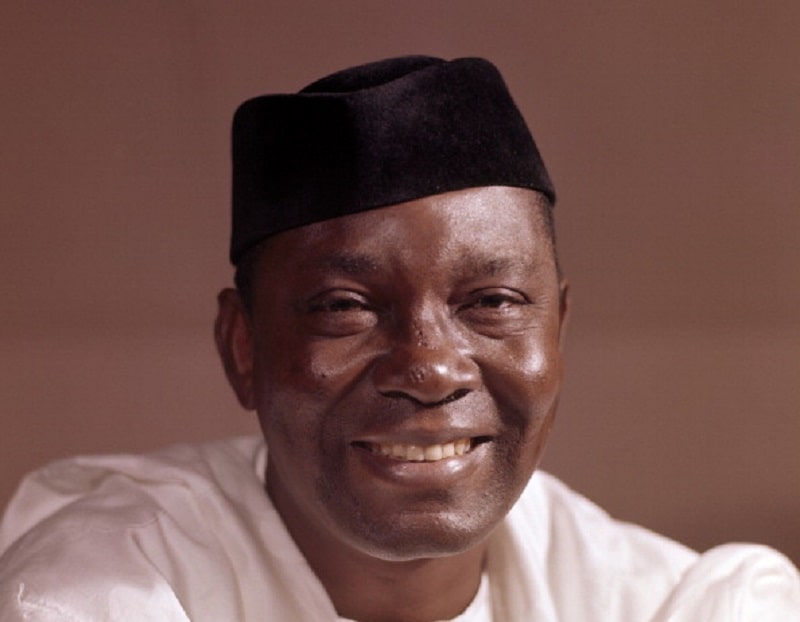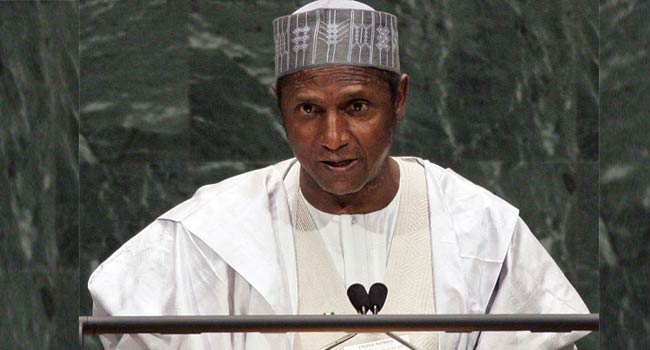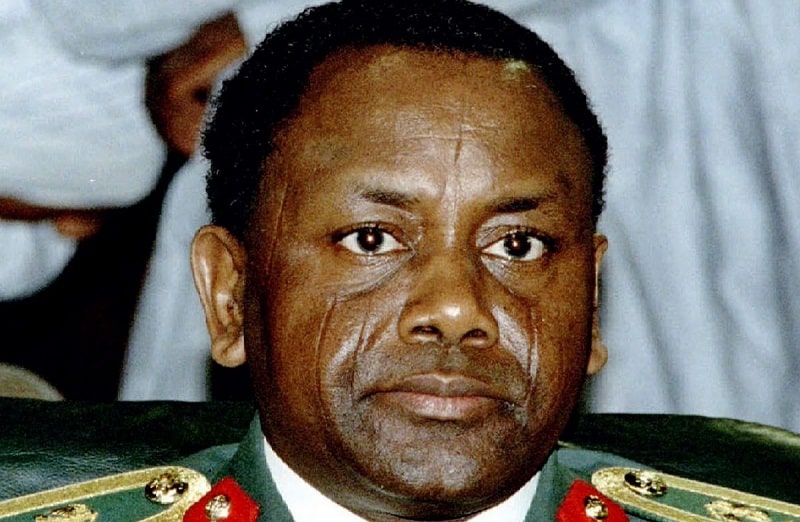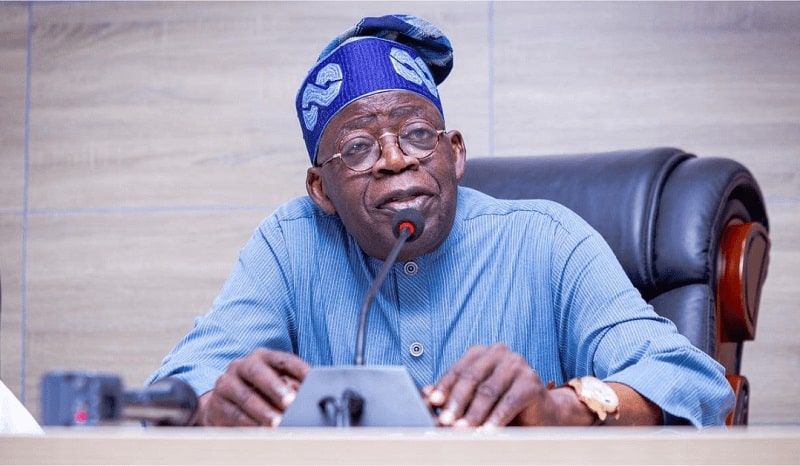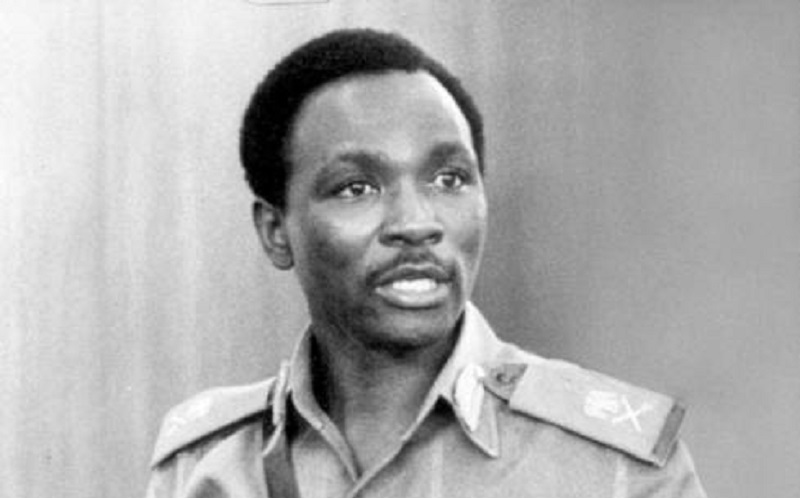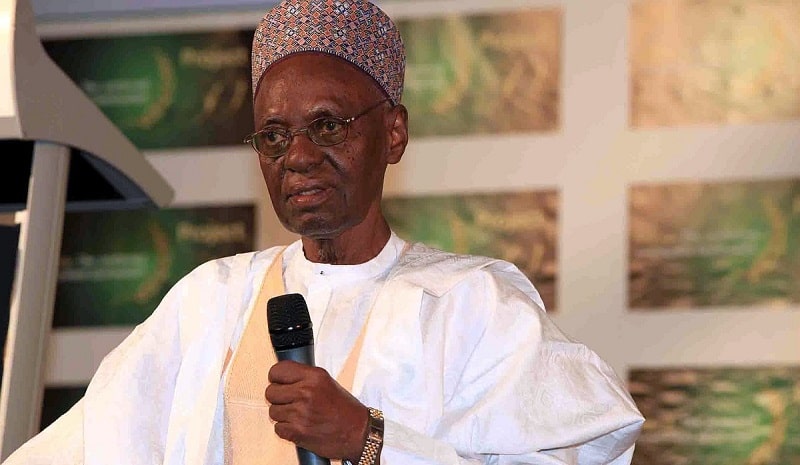
Alhaji Shehu Shagari was the first democratically elected President of Nigeria, serving from 1979 to 1983. He is widely regarded as one of Nigeria’s most prominent political figure.
| List | Information |
|---|---|
| Name | Shehu Usman Aliyu Shagari |
| Date of Birth | February 25, 1925 |
| Age | 93 years at the time of death |
| Died | December 28, 2018 |
| Ancestral Home | Shagari, Sokoto State, Nigeria |
| Native Language | Hausa |
| School Attended | Yabo Elementary School, Kaduna College (Barewa College) |
| Career & Occupation | Teacher, Politician |
| Military Rank | N/A |
| Height | N/A |
| Known As | N/A |
| Citizenship | Nigerian |
| Residence | Sokoto, Nigeria |
| Religion | Islam |
| Wife’s Name | Hadiza Shagari |
| Children’s Name | Muhammad Bala Shagari, Aminu Shehu Shagari, Abdulrahman Shehu Shagari |
| Assumed Presidential Office | October 1, 1979 ( first democratically elected President of Nigeria) |
| Left Presidential Office | December 31, 1983 (4 years in office) |
| Political Party | National Party of Nigeria (NPN) |
Shagari’s Early Life and Career
Shehu Shagari was born on February 25, 1925, in Shagari village, Sokoto State, Nigeria. He received his education in Nigeria and later went on to study in the United Kingdom. He began his political career as a member of the Northern People’s Congress (NPC) and served as a member of the Federal House of Representatives in Nigeria’s first post-independence government.
Shagari’s Rise to Power
Following the military coup that toppled the government of General Yakubu Gowon in 1975, Shehu Shagari emerged as one of the key figures in the new civilian government. In 1979, he contested and won the presidential election under the banner of the National Party of Nigeria (NPN).
Shagari’s Achievements in Office
During his tenure in office, President Shehu Shagari implemented a number of policies and initiatives aimed at promoting economic growth and development. He oversaw the establishment of the Green Revolution Program, which sought to increase agricultural production and reduce Nigeria’s dependence on food imports. His government also launched several infrastructure projects, including the construction of new roads, bridges, and hospitals.
President Shagari also pursued an active foreign policy, seeking to promote Nigeria’s influence on the global stage. He played a leading role in the formation of the Economic Community of West African States (ECOWAS) and worked to promote peace and stability in the region.
Challenges and Overthrow
His tenure in office was also marked by many challenges. His government was beset by corruption scandals and allegations of electoral fraud. The economy also struggled, with high inflation and a lack of foreign investment.
In December 1983, President Shagari was overthrown in a military coup led by General Muhammadu Buhari. He was subsequently placed under house arrest for several years before being released in 1986.
Shagari’s Legacy
Shehu Shagari is regarded as one of Nigeria’s most important political figures. His commitment to democracy and the rule of law paved the way for Nigeria’s eventual transition to civilian rule in 1999. His government’s efforts to promote economic growth and development laid the foundation for Nigeria’s emergence as a major economic power in Africa.
Additional Facts
- Shehu Shagari was Nigeria’s first executive president, serving from 1979 to 1983.
- Shagari started his career as a teacher before entering politics.
- Shagari entered politics in 1951 when he was elected to the federal House of Representatives.
- He was a founding member of the Northern People’s Congress (NPC)
- Shagari co-founded the National Party of Nigeria (NPN), under whose banner he was elected president in 1979.
- His administration focused on developing agriculture, education, and infrastructure, with initiatives like the Green Revolution to boost agricultural production.
- He was re-elected for a second term in 1983, amidst allegations of electoral fraud and irregularities.
- Shagari’s government established several universities and secondary schools in an attempt to promoting higher education across Nigeria.
Alhaji Shehu Shagari FAQs
Related: General Ibrahim Babangida (Former Head of State – (1985-1993)
